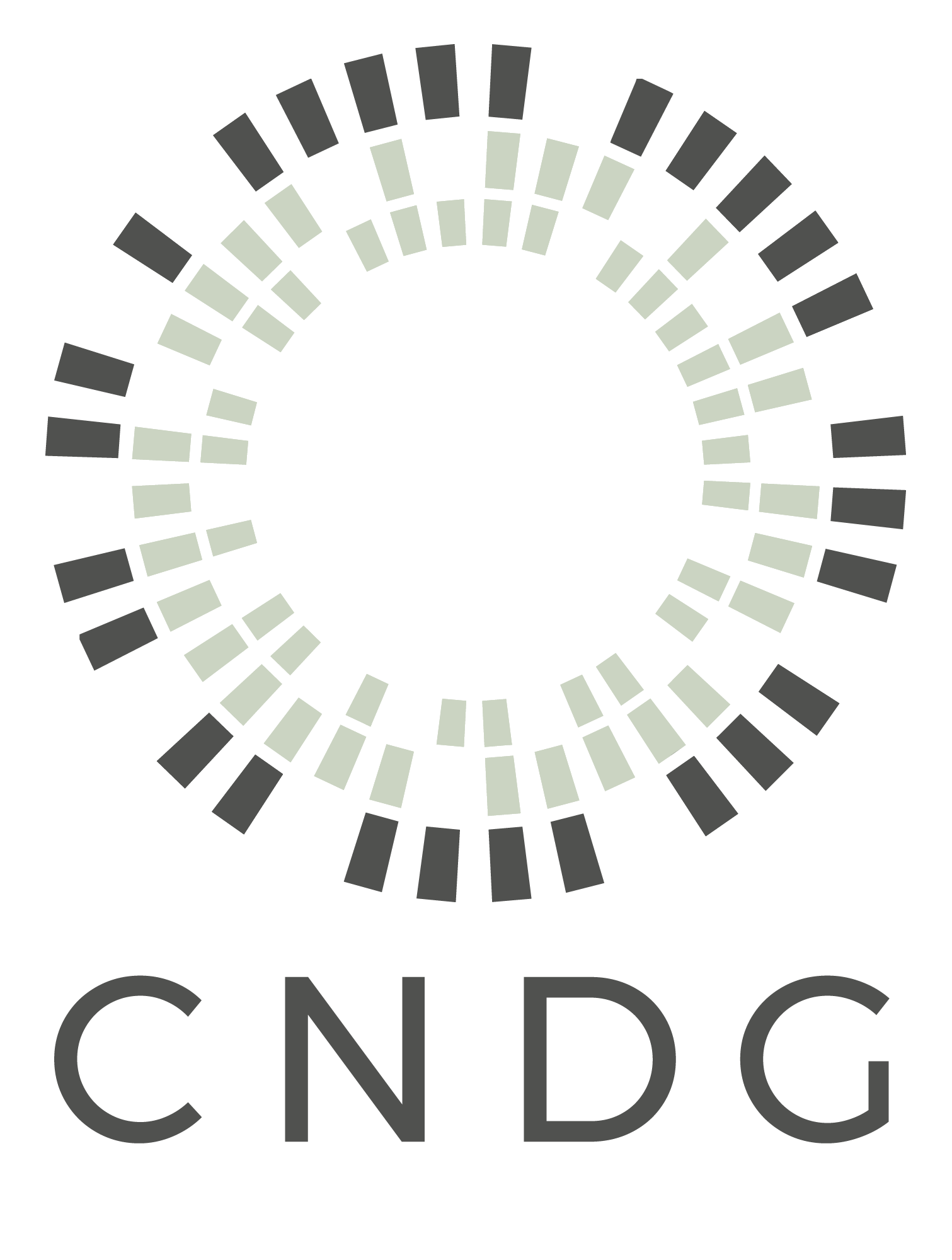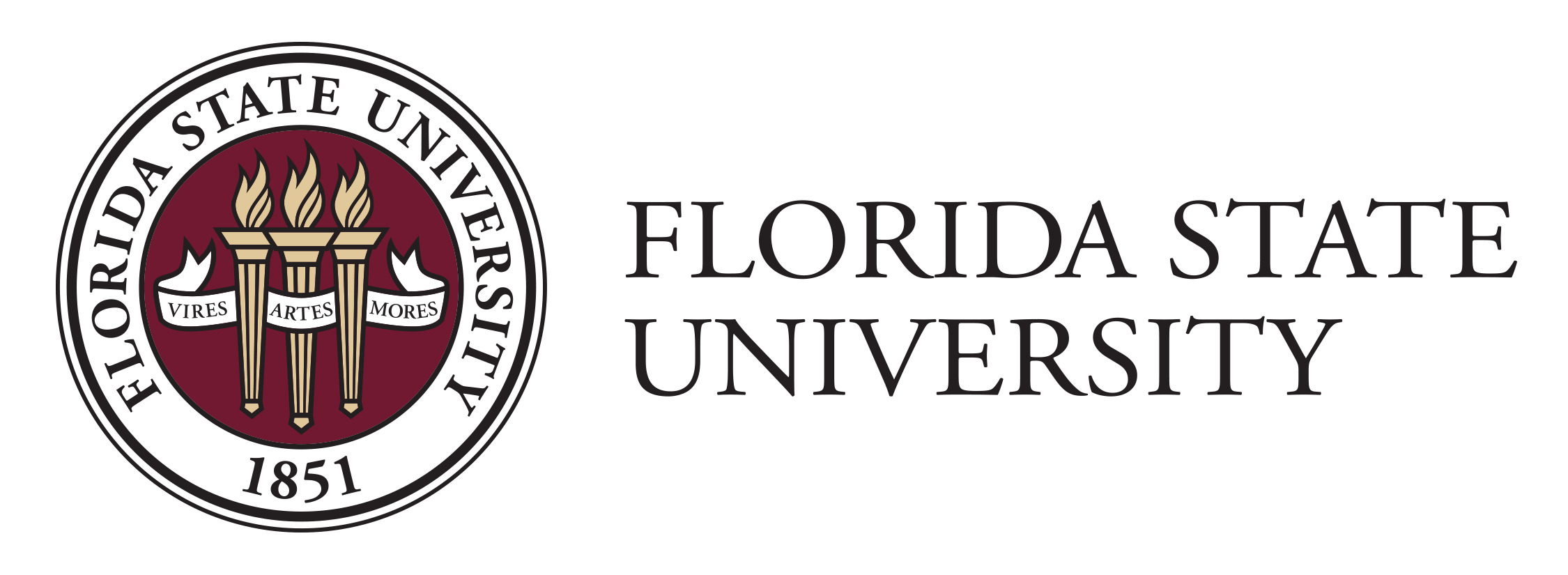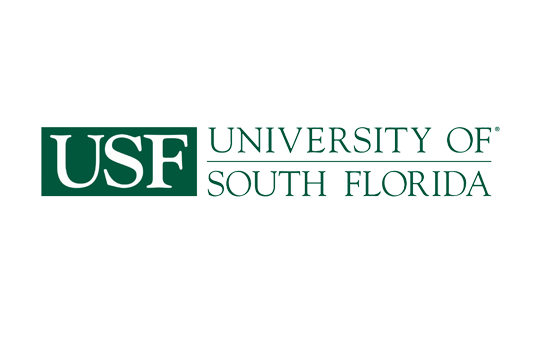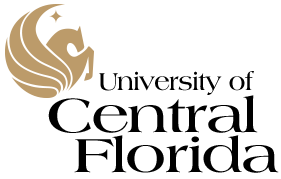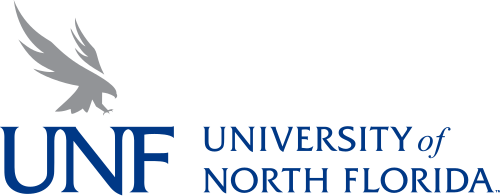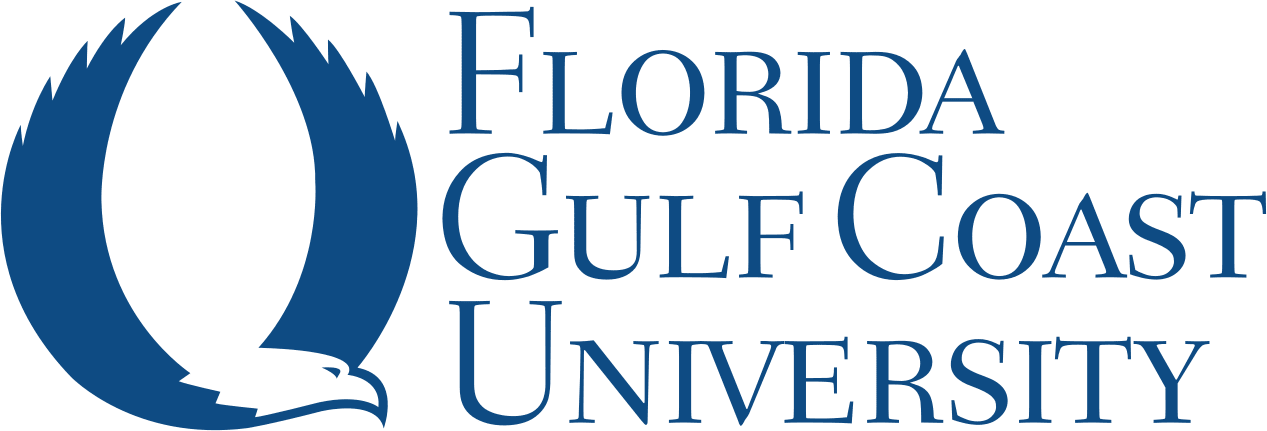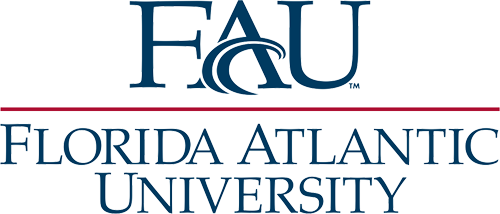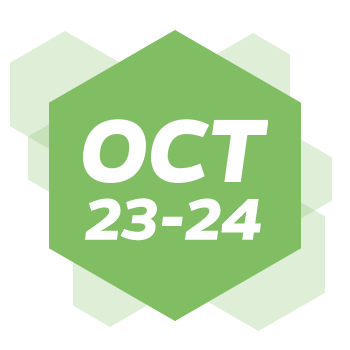
Event Overview:
University of Florida Online hosts and invites faculty from the fields of Science, Technology, Engineering and Math (STEM) to the first State University System of Florida Symposium and Showcase, featuring frank engagement and exchange of ideas on the future of STEM Courses and Labs for undergraduate students.
Join us as we discuss how to ensure the wise integration of EdTech in STEM. Be part of lively discussions among faculty across the system and enjoy the conference’s many offerings, including captivating speakers, engaging panels, and a poster session.
Agenda:
8:15 – 9:15 am
- Registration and breakfast (provided)
9:15 am – 9:30 am
- Welcome -- Evangeline Cummings Assistant Provost & Director, UF Online
- Location: Century A Ballroom
9:30 – 10:15 am
- Keynote: The Future of Data Science Education Brian Caffo, Ph.D., Johns Hopkins University
- Location: Century A Ballroom
10:30 am – 11:45 am
- Breakout Session One:
- Track 1: Faculty Lessons from Undergraduate Computer Science Learning Environments
- Jeremiah Blanchard (UF): Rethinking hardware-related coursework in CS classrooms
- Cheryl Resch (UF): Short auto-graded programming assignments in data structures
- Ingrid Buckley (FGCU): Using a cyber learning environment (SEP-CyLE) to teach Software Testing
- Location: Azalea
- Track 2: Faculty Lessons that Cut across STEM Fields and Courses
- Kersten Schroeder (UCF): Freeing up class for active learning by migrating lectures onlines
- Stefanie Wulff (UF) & Ryan K.Boettger (UNT) Data-driven approach to teaching STEM undergraduates discipline-specific writing skills
- Cynthia Erickson (UA) Leveraging technology and evidence-based teaching practice to improve online learning
- Location: Hickory
12:00 pm – 1:00 pm
- Lunch (provided) Presentation: Finding Best Practices for Teaching in Virtual Learning Environments*
- Moderator: William Prensky, Chief Executive Officer, CNDG
- Michele Yeargain, UCF Department of Biology
- Stephanie Dillon, FSU Department of Chemistry
- William Landing, FSU Department of Earth, Ocean and Atmospheric Science
- *Organized & Sponsored by CNDG
- Location: Century A Ballroom
1:00 pm – 2:15 pm
- Breakout Session Two:
- Track 1: Faculty Lessons From Math & Engineering Fields
- Kevin Knudson (UF): Xronos: An open educational resource project
- Rina Bousalis (FAU): Integrating and promoting technology and mathematics into Social Studies
- Michael Marsiske (UF) & Lindsay J. Rotblatt (UF): Flipping graduate statistics curriculum: technology-enhanced learning
- Richard Biehl (UCF): Taking “Probability and Statistics for Engineers” completely online
- Location: Azalea
- Track 2: Faculty Lessons from the Field of Physics
- Shawn Weatherford (UF) & Robert DeSerio (UF): Designing physics labs with IOLab
- Korey Sorge (FAU): Assessing student thought process in online physics exams
- Location: Hickory
2:30 pm – 3:45 pm
- Breakout Session Three:
- Track 1: Faculty Lessons on Delivering High Quality Chemistry Courses & Labs
- Melanie Veige (UF): Redesign of general chemistry laboratory curriculum
- Ozlem Yavuz-Petrowski (FAU): Strategies used to develop online labs for Health Sciences
- Patrick Ande (FAU): General Chemistry for Health Sciences: a fully online course for busy people
- Location: Azalea
- Track 2: Immersive Learning
- Maikel Alendy (FIU) & Rodolfo Rego (FIU): Creating effective and engaging VR Assignments for online and in-person courses
- Andrea Lucky (UF): Distance students in the field: opportunities and challenges of collections-based courses
- Jason Denno (UA): Cyber Virtual Learning Environment to complete hands-on exercises in coursework
- Location: Hickory
4:00 pm – 5:00 pm
- Plenary Panel What are the implications for STEM Courses and Labs using hybrid or online formats given the current state of Medical School and Veterinary School Admissions Requirements and Cultures? Ensuring High Quality STEM Undergraduate Courses and Labs Considerations for Medical School & Veterinary School Admission
- Dr. David Quillen -- UF College of Medicine
- Dr. Leila Amiri -- University of Illinois, Chicago
- Dr. Juan Samper -- UF College of Veterinary Medicine
- Audience Q&A
- Location: Century A Ballroom
5:00 pm – 7:00 pm
- Networking Reception
7:00 am – 8:00 am
- Breakfast (Provided)
8:00 am – 9:00 am
- Keynote: The Advantages of Teaching Science Online Brian Harfe, Ph.D, University of Florida
- Location: Century A Ballroom
9:00 am – 10:00 am
- Anatomy & Physiology
- Andrew Hill (UF) -- Research experience in online human physiology course through computer modeling
- Joslyn Ahlgren (UF) -- Lessons learned from designing and o ering a fully online anatomy lab with customized dissection kits
- Location: Century A Ballroom
10:00 am – 11:00 am
- Breakout Session One:
- Track 1: Genetics & Conservation Biology
- Vanessa Hull (UF): Integrating an audience response system with visual learning in Conservation Biology
- Johnny El-Rady (USF): I’m So Much Cooler Online: Reviewing teaching General Genetics in various formats over 20 years
- Location: Azalea
- Track 2: Teaching Research
- Eric Triplett (UF): Research participation for online students with a scalable oral microbiome project
- Marina Klimenko (UF): Teaching research to a large online class by engaging students in research
- Location: Hickory
11:00 am – 12:00 pm
- Microbiology & Cell Science
- Alexandria Ardissone, Jennifer Drew, Monika Oli, Sebastian Galindo, Kelly Rice, Macarena Urrets-Zavalia & Eric Triplett (UF) Accelerated face-to-face lab course format and the 2+2 transfer system
- Location: Century A Ballroom
12:00pm – 12:15pm
- Closing Remarks -- Evangeline Cummings Assistant Provost & Director, UF Online
- Location: Century A Ballroom
The work required for online courses can take a variety of forms such as lectures, discussion boards, reading, interactive labs, group projects, problem sets, research papers and recorded presentations. In general, you should allot three to four hours of work per week for every credit. Therefore, for an average course load of 12 credits per semester, students should schedule 36 to 48 hours of study time per week.
Here are some suggestions to help manage your coursework.
- At the start of each term, read the calendar and syllabus for each course you’re enrolled in to understand:
- the work required for the course
- assignment and exam deadlines
- Plot out your coursework in your calendar.
- Set specific times to work on course materials.
- Give yourself time to absorb the content; shorter, more frequent study sessions will improve comprehension (and stress levels) than one massive study session per week.
Speakers:
Professor, Johns Hopkins University, Department of Biostatistics
Keynote Speaker, Oct. 23:
Brian Caffo, Ph.D., received his doctorate in statistics from the University of Florida in 2001 before joining the faculty at the Johns Hopkins Department of Biostatistics, where he became a full professor in 2013. He has pursued research in statistical computing, generalized linear mixed models, neuroimaging, functional magnetic resonance imaging, image processing and the analysis of big data. He created and led a team that won the ADHD-200 prediction competition. He was the recipient the Presidential Early Career Award for Scientist and Engineers, the highest award given by the U.S. government for early career researchers in STEM fields. He co-created and co-directs the SMART group focusing on statistical methodology for biological signals as well as the JHU Data Science Lab. He also co-created and co-directs the Data Science Specialization, a popular 10-course mini-degree on data analysis and computing, as well as other massive open online programs and courses. Dr. Caffo was the director of admissions and the graduate programs in Biostatistics and is the recipient of the Golden Apple teaching award and AMTRA mentoring awards.
Associate Dean, University of Florida, College of Liberal Arts and Sciences
Keynote Speaker, Oct. 24:
Dr. Brian Harfe earned a B.S. (honors) degree from the University of Glasgow, Scotland, followed by a Ph.D. in developmental biology from The Johns Hopkins University. After completing his Ph.D., he held postdoctoral positions at Emory University and Harvard Medical School. Currently, he is a Professor in the UF College of Medicine, Associate Dean of Research (ADR) and Associate Dean for the Natural Sciences and Mathematics in the College of Liberal Arts and Sciences, and Assistant Provost for Teaching and Technology in the Office of the Provost. He is responsible for all research, online activities, and the seven science departments in the UF College of Liberal Arts and Sciences. Projects in the Harfe laboratory include investigating limb and intervertebral disc development using the mouse and chick model systems. He has published over 100 papers, which have been cited more than 14,000 times (h-index 60, i10-index 90). His research has been funded by both private and public agencies. Dr. Harfe teaches graduate, medical, and undergraduate students and has received numerous teaching awards.
University of Florida
Andrea Lucky is a science educator, an evolutionary biologist and biodiversity scientist. She teaches entomology courses at introductory and advanced level. Her research focuses specifically on the evolution of ants and the impacts of invasive species. The tools she uses in her work range across insect morphology, molecular phylogenetics and micro-CT scanning. She answers questions about the relationships among different species of ants and how their diversification has led to distribution patterns we see today. In addition to her research interests, a major goal of her work is to make science accessible and available to the general public, particularly to make the process of ‘doing’ science accessible to non-scientists through citizen science.
University of Florida
Cheryl Resch is a Lecturer in the Computer Information Sciences and Engineering (CISE) department and the Institute for Excellence in Engineering Education in the Wertheim College of Engineering at University of Florida since 2017. She teaches multiple core courses for the Computer Science and Computer Engineering programs on campus and online. Ms. Resch has a BS and MS in Mechanical Engineering from University of Maryland and an MS in Computer Science from Johns Hopkins University (JHU). Before coming to UF, Ms. Resch worked for 29 years at the Johns Hopkins University Applied Physics Laboratory (JHU/APL) and for 15 years taught Computer Science courses at the JHU Whiting School of Engineering. At JHU/APL, Ms. Resch’s work ranged from aerodynamic heat transfer and stress analysis, to research in pattern recognition and path planning. For the last 15 years at JHU/APL, Ms. Resch worked in cybersecurity, first in secure computing platforms, then finally in cybersecurity architecture for a large enterprise.
University of Florida
Andrew Hill has expertise in teaching neuroscience, human physiology, and animal physiology. His research experience is in neuroscience. He has used neurophysiological and neuroanatomical techniques to understand how neural circuits in the brain work. He has used a comparative approach, studying the nervous systems of arthropods, annelids, and mammals. In some studies, he created computer simulations of neural networks. One topic that he has studied in depth is the basic mechanism that underlies rhythm generation in the brain. More recently, he has studied the effect of environmental toxins on the development of the brain, specifically the region of the brainstem involved in the generation of the rhythm that governs breathing. He is currently interested in the use of computer simulations to deepen and enrich the understanding of complex physiological phenomena by students of human and animal physiology. For example, students may use computer simulations to do research in which they explore a topic in much greater depth than is possible using traditional methods of teaching. Additionally, students may explore case studies in which they learn about a disease state or a dynamic physiological mechanism such as the control of a regulated variable by more than one process (e.g., antagonistic hormones).
University of Florida
Eric Triplett joined the University of Florida as Professor and Chair of the IFAS Department of Microbiology and Cell Science in 2003. As Chair, he led the efforts to deliver most of the department’s curriculum online to improve instruction and student access as well as enhance the diversity of the undergraduate cohort. He is keen to provide publishable research experiences to as many undergraduates as possible and is leading a team to devise a strategy to do this through a scalable microbiome project. He teaches a course on the microbiome every spring semester. He also conducts research with his graduate students on citrus greening disease, the human microbiome as related to type 1 diabetes and premature birth, and nitrogen fixation.
Florida Gulf Coast University
Dr. Ingrid Buckley earned a BS degree in Computing and Information Technology from the University of Technology, Jamaica. She holds a MS and a PhD from Florida Atlantic University. In 2015, she joined the faculty at Florida Gulf Coast University in her current rank of Assistant Professor of Software Engineering. Previously, she held a position as Assistant Professor of Computer Science at Tuskegee University. Dr. Buckley’s areas of specialization are information security, software engineering and testing, and cybersecurity education. She has authored peer reviewed publications, a book chapter and several journal papers. Her current work in software engineering and testing focuses on training and educating undergraduate computer science majors on designing and implementing secure and dependable applications. She has received awards and grants from various funding agencies including the National Science Foundation (NSF) and Florida Center for Cybersecurity (FC2). Dr. Buckley is a member of the National Society of Black Engineers (NSBE), Upsilon Pi Epsilon, Golden Key International honorary societies and the American Society for Engineering Education (ASEE).
University of Florida
Jeremiah Blanchard is an Assistant Engineer at the University of Florida in the Computer & Information Science & Engineering Department, where he teaches and conducts research in computer science education. Previously, he served as Program Director of Game Development at Full Sail University in Winter Park, Florida (in the greater Orlando area), where he worked for 10 years, teaching Artificial Intelligence for Games and Game Networking courses before moving into administration. His industry work has focused on educational and serious games, including work with the National Flight Academy in Pensacola, Florida, developing flight simulator scenarios to help teach at-risk middle and high school students mathematics, physics, and history. Prior to joining Full Sail, he worked as a freelance game and application developer and lived, worked, and studied in the Osaka region of Japan. He completed his Master of Science in Computer Engineering at the University of Florida.
University of South Florida
Johnny El-Rady is an Instructor III in the Department of Cell Biology, Microbiology and Molecular Biology at USF. He has offered courses at all levels (first year to graduate) and all sizes (20-500), both live and online. He is privileged and pleased to have taught over 24,000 students! He has made significant contributions to his university, profession, and community. He is a Faculty Fellow for Housing and Residential Services, and has served as a Commencement Marshall since 2005. He has been a member of several committees convened by the Florida Department of Education, including the statewide science assessment committee, which he has proudly served since its inception in 2001. He has chaired two education sessions for the Southeastern Branch of the American Society of Microbiology. Furthermore, El-Rady is a subject matter expert for various publishing companies, and has written numerous ancillaries for college textbooks. Many of his courses include a service component to the community. His students have made YouTube videos that have gone viral (or at least were about viruses). They have also given presentations at various elementary and middle schools, in MOSI (Museum of Science and Industry), and at King’s Cross Railway station in London, England.
University of Central Florida
Kersten Schroeder earned a B.Sc. degree in Microbiology and Cell Science from the University of Florida in 1999, followed by a PhD in Biochemistry from Florida State University in 2006. After earning his degree from FSU, he moved to Scotland and worked as a Postdoctoral Research Associate in the Cancer Research UK Nucleic Acid Research Group at University of Dundee under the guidance of Professor David Lilley, FRS. In 2012, he moved back to Florida and became Assistant Professor of Biochemistry at Lake Erie College of Osteopathic Medicine (LECOM) in Bradenton, Florida. During his time in Bradenton, he taught medical, dental, and pharmacy students. He also organized several high school science outreach programs and developed a passion for active learning in Bradenton. He had formal training and success implementing Problem-Based Learning (PBL) and Team-Based Learning (TBL). In 2017, Dr. Schroeder joined the Burnett School of Biomedical Sciences at University of Central Florida’s College of Medicine as faculty and teaches Molecular Biology, Medical Biochemistry, Quantitative Biological Methods, and Microbial Metabolism. He has developed a Mix-Mode course (mixture online and lecture components) for Microbial Metabolism (MCB4414) in order to free up class time for active learning activities.
FIU Online
Maikel Alendy is currently a senior instructional designer with FIU Online. With degrees from the University of Florida and Florida International University in the fields of neuroscience, cultural anthropology, healthcare, and business; his main research interests and publications are in cardiovascular molecular biology, aging, social media, anthropology, and online pedagogy. Within FIU’s honors college, Maikel teaches the fully-online course Digital Fairytale, merging social movements, disruptive technologies, and business trends with a dash of neuropsychology. He is also the instructor for the hybrid course Power of Play, in which students examine the importance of play throughout their lifetime and partner with Sweetwater Elementary to design games for K-5 students. Maikel currently serves as the online experience consultant for FIU’s Honors College and the CTO for a small digital consulting company based in Miami.
University of Florida
Melanie Veige earned a B.Sc. (honors) degree from McGill University, Canada, followed by a M.Sc. in organic chemistry from the University of British Columbia, Canada. After completing her education, she worked in the pharmaceutical industry in Vancouver, BC and in Cambridge, MA. She moved to Gainesville, FL to begin her teaching career at Santa Fe College. Currently, she is the Director of General Chemistry, a Senior Lecturer, and Undergraduate Coordinator for the Department of Chemistry at the University of Florida. In her tenure at UF, she has developed and teaches a suite of online introductory level courses in Chemistry. Most recently, she was tasked with redeveloping the general chemistry laboratory curriculum for Chemistry and acts as lab coordinator for the program.
University of Florida
Michael Marsiske is an Associate Professor and Associate Chair for Research in the Department of Clinical and Health Psychology at the University of Florida (UF). Marsiske’s major research emphases are: (a) cognitive interventions for, and (b) measurement of real-world cognition in older adults. Marsiske is one of the PIs of the NIH-funded ACTIVE trial, a twenty-year multi-site study of the long-term effects of cognitive interventions for older adults. Other support has come from the Robert Wood Johnson Foundation “Pioneer” program and the McKnight Brain Research Foundation. Marsiske is also training director of a National Institute on Aging (NIA) funded pre-doctoral T32 program in aging, funded since 2003, and he serves as the Core Leader for the Data Management/Analysis Core of the NIA-funded 1Florida Alzheimers Disease Research Center at UF. Dr. Marsiske is a Fellow of the Gerontological Society of America. He is a past recipient of the Springer Award for Early Career Achievement in Research and Adult Development and Aging from Division 20 of the American Psychological Association, an organization for which he is now President. At UF, he has also received the University’s UF Research Foundation Professorship and the UF Doctoral Mentoring Award. Marsiske is a past-Chair of the NIA-S (Behavioral and Social Sciences) Initial Review Group for the National Institute on Aging.
Florida Atlantic Universitya
Özlem Yavuz-Petrowski obtained her PhD and MS in Physical Chemistry, and BS in Chemistry all at Istanbul Technical University, Istanbul, Turkey. She had a postdoctoral fellowship at the Department of Chemistry, University of Central Florida; a visiting scientist position at Department of Pure and Applied Chemistry, University of Strathclyde, Glasgow, UK. After completing her post-doctoral studies, she started working at Fractal Systems, Inc. as a staff scientist and involved in research and development of conducting polymers, metal oxide and magnetic materials for sensor applications. She joined NanoEner, Inc. as a materials scientist for development of Li-ion battery electrodes and involved material preparation, and processes and study their effects on deposition systems and performed electrochemical testing and morphology analysis. Currently, she is working as an Assistant Lab Director and an Instructor at Florida Atlantic University at Chemistry Department. She oversees evening and day General Chemistry Lab courses and coordinates General Chemistry discussion classes. She is an instructor of “General Chemistry for Health Science Lab” and “Introduction to Physical Chemistry Course.” She has published more than 25 scientific publications and 4 book chapters.
Florida Atlantic University
Patrick Ande received his BS degree in biology from Tulane University, New Orleans, Louisiana. Followed by a MS Degree in Biochemistry from University of Tennessee, Knoxville, Tennessee. After completing his work, he joined Boehringer Mannheim Biochemicals as a Technical Liaison and Regional Sales Manager for the Southeast. He joined Florida Atlantic University as an Instructor of General Chemistry 1, 2, General Chem labs 1 & 2 and has been instrumental in developing online courses in Chemistry and an online lab for Health Sciences. He has pursued research with the South Florida Water Management on reducing the amount of Copper and Mercury in Stormwater Treatment areas (STA’s) in the Everglades Agricultural Area (EAA) using an activated silica compound. He is a senior instructor currently working on integrating an electronic course manual – Mobius platform, into the general chemistry lecture. His focus is on the creation of more online chemistry lecture and lab components in the chemistry curriculum.
University of Central Florida
Richard Biehl is a lecturer in the Industrial Engineering and Management System Department at the UCF College of Engineering and Computer Sciences. He teaches in both undergraduate and graduate programs, including the online master’s track in Healthcare Systems Engineering. Rick specializes in the development of online curriculum and course materials, holding a master’s degree in Educational Change and Technology Innovation from Walden University. Rick also holds a PhD in Applied Management & Decision Sciences from Walden University, as well as ASQ certifications as both Certified Six Sigma Black Belt (CSSBB) and Certified Software Quality Engineer (CSQE).
Florida Atlantic University
Rina Bousalis is an Assistant Professor of Social Studies Education in the College of Education’s Department of Teaching and Learning at Florida Atlantic University in Boca Raton, FL. Her research interests include immigration, multiculturalism, human rights, United States history, and global and civics education. Dr. Bousalis was previously a high school social studies teacher in Tampa, FL, an elementary school teacher in Tampa, FL, and an adjunct instructor at the University of South Florida, Tampa, FL where she earned a doctoral degree in Curriculum & Instruction with a specialization in Social Science Education, a master’s degree in Curriculum & Instruction with specialization in education, and a bachelor’s degree in Elementary Education. She has authored articles for peer-reviewed journals such as Social Education, The Social Studies, Social Studies Research and Practice, and Multicultural Learning and Teaching, and presented at international, national, and state conferences.
Florida International University
Rodolfo Rego is a senior online instructor in the Department of Earth and Environment at Florida International University (FIU). He is a geologist and an environmental scientist who specializes in the geology of South Florida and groundwater issues associated with petroleum contamination. He received his B.S. in Geology in 1997 from FIU and his M.S. in Geology in 2002 from FIU.
University of North Texas
Ryan K. Boettger is an Associate Professor and Assistant Department Chair of Technical Communication at the University of North Texas, Denton, TX, USA. His research areas include content analysis, data-driven learning, and technical editing. He is the co-creator of the Technical Writing Project, a databank of authentic student technical writing. Research related to this project is currently funded by the National Science Foundation. Professionally, he worked as a technical editor for the Texas Army National Guard and as the managing director of a grants office at the Texas Tech University Health Sciences Center. He holds a Ph.D. and M.A. in Technical Communication from Texas Tech University. He currently edits the Wiley-IEEE Press book series in Professional Engineering Communication.
University of Florida
Shawn Weatherford holds a BA in physics from Elon College, and a MS and PhD in physics from North Carolina State University. He joined the physics faculty at UF in 2017 as a lecturer, following a previous appointment at Saint Leo University. His teaching and curricular development experience includes developing general education courses for online and traditional modalities, developing instructional activities for teaching computational modeling in physics, as well as teaching introductory physics to diverse student populations. His current activities focuses on developing and evaluating introductory physics courses for UF Online and promoting experiential learning as part of the undergraduate physics program.
University of Florida
Stefanie Wulff is an Assistant Professor in the Linguistics Department at the University of Florida. Her research areas include corpus linguistics, second language acquisition, and student writing development. She is the co-creator of the Technical Writing Project, a databank of authentic student technical writing. Research related to this project is currently funded by the National Science Foundation. She is editor-in-chief of Corpus Linguistics and Linguistics Theory (de Gruyter Mouton).
University of Florida
Vanessa Hull received her Ph.D. in Fisheries and Wildlife as part of the Center for Systems Integration and Sustainability (CSIS) at Michigan State University in 2014. She is now an Assistant Professor in the Department of Wildlife Ecology and Conservation at the University of Florida. She teaches and conducts research on topics related to conservation biology, wildlife ecology and management, and coupled human and natural systems. Dr. Hull is passionate about adopting international and interdisciplinary approaches for conservation research and education. She is interested in exploring classroom innovations that internationalize the curriculum and integrate web-based approaches for visual learning and engagement.
Florida Atlantic University
Korey Sorge, Ph. D., received his doctorate in Physics from the University of Tennessee in 2002. After a postdoctoral position at the University of Nebraska, he joined the faculty in the Department of Physics at Florida Atlantic University in 2005. Dr. Sorge’s primary research interest is studying the magnetic properties of novel materials. However, in recent years he has taken an interest in developing techniques to use technology in the classroom, as well as the building of online courses—lower-division, upper-division and laboratory. With this new focus on education, Dr. Sorge has recently served on the evaluation committee for FAU’s LMS, and currently serves on the SUS Taskforce on Labs for Mobile Students. He was also the recipient of the 2017 FAU Excellence in eLearning Award in the “Full-Time Faculty” category.
The University of Arizona
Cynthia Erickson earned her Ph.D. in Psychology and Neuroscience at the University of Arizona in 1993. Broadly speaking, her career, even as an undergraduate, has been spent searching for the biological basis of learning and memory in rats, monkeys and humans. As an electrophysiologist at the National Institute of Mental Health, and later, the University of California, she examined changes in neural functioning as consequence of learning. More recently, she turned her focus to applying research in behavioral and cognitive neuroscience to improve undergraduate learning. Her favorite books are “Thinking Fast and Slow” by Daniel Kahneman, “Factfulness: Ten Reasons We’re Wrong About the World – and Why Things Are Better Than You Think” by Hans Rosling, Anna Rosling Rönnlund & Ola Rosling, and of course, “Make It Stick: The Science of Successful Learning” by Peter Brown, Henry Roediger III & Mark McDaniel.
The University of Arizona
Jason Denno is the Director of Cyber Operations at the University of Arizona. Mr. Denno’s experience includes over twenty years of designing, developing, deploying, and operating intelligence and cyber systems across the globe. His professional experience includes senior level positions in both large and small defense contracting companies; the Director of the Battle Command Battle Lab for Fort Huachuca; and formerly as a US Army Infantry and Signals Intelligence Officer. In addition to a Master’s of Science in Cyber Operations, MBA, and BA in Political Science, Mr. Denno possesses multiple GIAC certifications in Cyber Operations.


